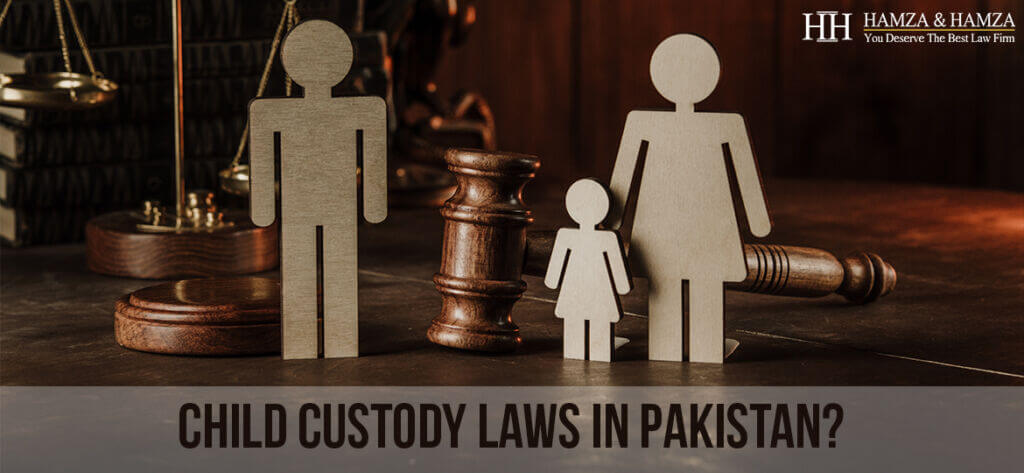Child custody laws in Pakistan are primarily influenced by a combination of Islamic law, statutory law, and judicial interpretations. However, Pakistan is a multi-religious country where non-Muslim minorities — including Christians, Hindus, Sikhs, Parsis, and others — also live. This raises an important question: Do non-Muslims follow the same custody laws as Muslims in Pakistan? The answer lies in understanding both the common legal framework and the application of personal laws.
The Common Legal Framework: Guardians and Wards Act, 1890
In Pakistan, the main statutory law governing child custody for all citizens, regardless of religion, is the Guardians and Wards Act, 1890 (GWA). This law was inherited from British India and remains the primary legal statute for guardianship and custody cases across the country.
The GWA is a secular law. It gives Pakistani courts broad discretionary powers to appoint a guardian for a minor based on one central principle: the welfare of the child is the paramount consideration. Under this Act, the courts may appoint either parent or even a third party as the guardian if doing so serves the child’s best interest.
Because the GWA applies uniformly to Muslims and non-Muslims alike, it provides a common legal platform for custody and guardianship cases. Therefore, to a large extent, non-Muslims do follow the same procedural custody laws as Muslims in Pakistan.
Role of Personal Laws for Non-Muslims
Although the GWA is the primary statute, the Act allows courts to consider the personal laws and religious customs of the parties involved when making custody decisions. For Muslims, Islamic law (Shariah) often guides decisions alongside the GWA. For non-Muslims, courts may consult their personal religious laws or community customs, but such references are usually limited and subject to the welfare principle.
For example:
-
Christians: There is no separate codified Christian custody law in Pakistan. In most cases, Christian parents also fall under the GWA. However, Christian canon law and religious customs may sometimes influence decisions, particularly on issues of remarriage or moral fitness.
-
Hindus: The Hindu Marriage Act, 2017, governs marriage, divorce, and maintenance for Hindus in Pakistan, but it does not specifically cover child custody. As a result, custody disputes among Hindus are also usually decided under the GWA, with courts sometimes taking into account Hindu customs and traditions.
-
Other Minorities: Sikhs, Parsis, and other smaller religious communities similarly rely on the GWA, with their customs occasionally referenced but not determinative.
The Welfare Principle: A Universal Standard
Regardless of religion, Pakistani courts consistently apply the welfare of the child as the highest standard in custody decisions. Courts consider several factors such as:
-
Age and gender of the child.
-
Emotional attachment with each parent.
-
The ability of each parent to provide proper care, education, and moral upbringing.
-
Financial stability and home environment.
-
The child’s own wishes, depending on age and maturity.
This approach ensures that religious differences do not lead to discrimination or unequal treatment in child custody matters.
Recent Judicial Trends
In recent years, Pakistani courts have delivered judgments that reflect the growing emphasis on fairness and child welfare for all communities. Superior courts have often made clear that the welfare of the child overrides strict adherence to any personal religious law if it conflicts with the child’s best interests.
For instance, in some cases involving interfaith marriages or parental conversions, courts have carefully balanced religious sensitivities with the welfare standard, ensuring that the child’s upbringing remains stable, secure, and nurturing.
Practical Challenges
While the legal framework appears equitable, non-Muslim minorities sometimes face practical challenges such as:
-
Lack of specialized family courts with expertise in minority personal laws.
-
Limited legal precedents for non-Muslim custody cases.
-
Cultural biases and misunderstandings in lower courts.
-
Financial or social pressures faced by minority communities in legal proceedings.
Despite these challenges, the higher judiciary generally upholds the principle of equality before the law, providing non-Muslim parents fair opportunities to claim custody based on the child’s welfare.
Conclusion
In summary, non-Muslims in Pakistan largely follow the same custody laws as Muslims under the Guardians and Wards Act, 1890. While personal religious customs may sometimes be considered, the welfare of the child remains the supreme guiding principle in all custody cases. Although non-Muslim communities face some unique challenges in practice, Pakistani courts like Hamza & Hamza Law Associates provides a largely uniform and welfare-centered framework for child custody across all religious groups.


